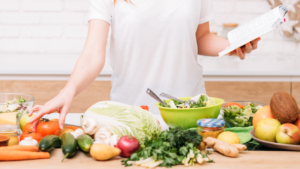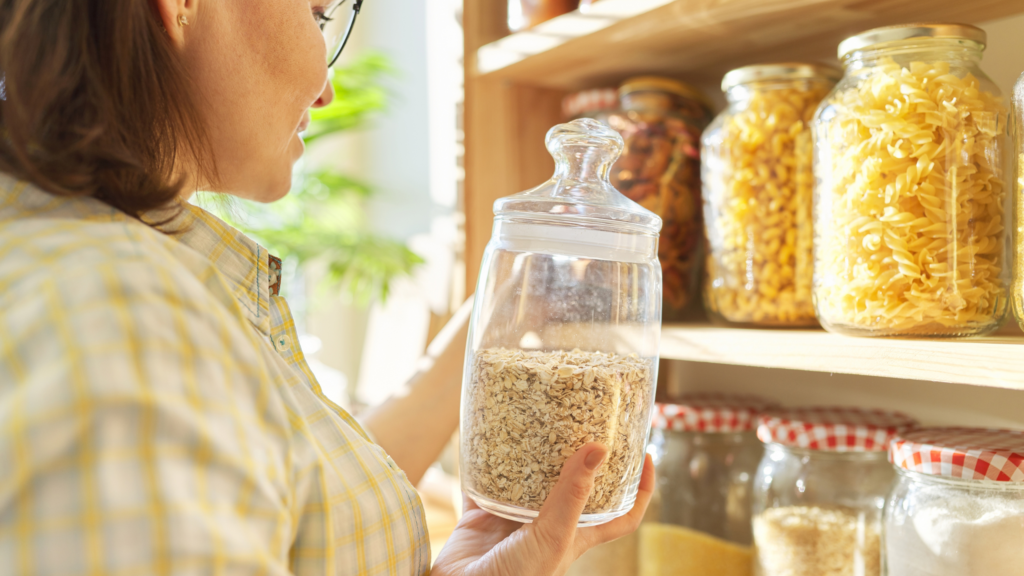Postpartum Diet
Before pregnancy, most women avoid a bunch of food items. While spicy foods are a big no-no, greasy fatty food items are to be kept away, making many women crave these foods even more. However, once the delivery is done, it does not mean that you can immediately get back to eating whatever you want.
Hence, as a part of your postnatal diet, it is important to know which food items can be consumed, and should be consumed, primarily, as part of a postnatal diet.
This one is specifically for First Trimester Indian Diet
Why is Postpartum Diet and Nourishment Important?
After your delivery, it is natural for you to focus all your attention on your baby. However, with labor and delivery taking a toll on your body, it is just as important to take care of your health, along with the baby.
Eating right can go a long way in helping you get back your strength and energy. After all, your baby needs a strong and healthy mum, and if you are breastfeeding, what you eat passes on to your baby through your milk. Therefore, it is even more important to eat well!

Here are three reasons why postpartum nourishment is vital:
- Provides Strength
Weakness is common in the third trimester, and even during post-delivery. Also, matching the baby’s schedule and getting less and erratic sleep makes women more fatigued. Besides, many women are also anemic or have an iron deficiency, which causes them to feel tired and weak and experience frequent headaches. Eating foods rich in iron, such as meat, spinach, legumes, dates, and others, makes women feel stronger.
- Enhances Breast Milk
Healthy fats and nutrients improve the quality of breast milk, whereas unhealthy fats affect the nourishment that breast milk provides to the baby. Hence, eating healthy keeps your baby healthy.
- Improve Mood
We already know that postpartum depression is quite common. However, eating healthy provides your body with the right nutrients, making you feel healthier, more energetic, and overall, much happier. This can help prevent or treat postpartum depression.

What to Eat After Delivery (Sample Postpartum Diet)?
Your body undergoes tremendous physical and hormonal changes during post-delivery. As you breastfeed, your body requires an additional 300 calories every day, just like during pregnancy. ‘Puneet Kaur Chhabra – Women Health Transformation Coach’ brings you a list of foods that are rich in protein, vitamins, minerals, iron, calcium, and omega-3s that you should take in your post-pregnancy diet:
- Low-fat dairy products
Dairy products, whether milk, cheese, or yogurt, form an important part of the diet during breastfeeding. They are an excellent source of calcium, protein, and B vitamins. Your baby absorbs calcium from the breast milk for bone development. Therefore, have calcium-rich foods to replace the lost calcium in your body. Include three cups of dairy every day in your diet.
- Lean meat
Lean meats are rich in iron, protein, and vitamin B12, and help boost your energy levels. Hence, consuming them will help to make up for the draining energy levels while breastfeeding.
- Pulses
Pulses (dals) are a primary element in a well-balanced diet. They are good sources of protein, fiber, vitamins, and minerals. You can have green and red grams by boiling and seasoning them so that they are easily digestible and tasty to eat. Pulses also prevent fat from accumulating in the body.
- Legumes
Dark-colored legumes such as kidney beans and black beans are a high source of non-animal protein. They help in replenishing energy during breastfeeding and are perfect for vegetarians and vegan mothers.
- Green vegetables
Green veggies are an excellent source of vitamins and minerals. They are low in calories and rich in heart-healthy antioxidants, which help in losing post-pregnancy weight. Leafy greens such as spinach, broccoli, and Swiss chard contain abundant amounts of vitamin A that are good for you and your baby.
Eat more of these leafy greens, beans, pointed gourd (parwal), apple gourd (tinda), lotus stem, and other such seasonal veggies.
- Brown rice
You may be thinking of cutting down the carbs to lose weight. However, drastic changes in your weight can affect your milk production and make you feel sluggish. Choose whole grains such as brown rice to boost your energy levels. They provide you and your little one with calories.
- Citrus fruits
Citrus fruits such as oranges provide you with vitamin C, which you need in abundance when breastfeeding. It is advised to have the whole fruit instead of the juice. Calcium-fortified drinks will benefit you.
- Salmon
It is said to be a nutritional powerhouse for new mothers. Like any other fatty fish, salmon contains DHA (docosahexaenoic acid), a type of fat, which is useful for your baby’s nervous system development. Although breast milk contains DHA naturally, the levels of this fat are higher in the milk of mothers who have DHA-rich foods.
9. Whole wheat bread
Folic acid is vital for fetal development in the early stages of pregnancy. It is also an essential nutrient in breast milk. Fortified whole-grain bread and pasta are good options to increase your daily dose of iron and fiber.
10. Whole-grain cereal
When you have a sleepless night, whole grain cereals make the best breakfast option for the next morning. Most of the cold cereals available are packed with vitamins and minerals, which help in meeting your everyday requirements. For instance, oats are an excellent source of calcium, iron, proteins, and carbs. They are also high in fiber, which helps relieve constipation.
11. Eggs
They are a rich source of protein. You may have egg scramble for breakfast, hard-boiled egg along with a salad for lunch, or an omelet for dinner.
12. Turmeric
It contains essential vitamins and minerals including vitamins B6 and C, potassium, manganese, magnesium, and fiber. Turmeric aids in treating inflammation and therefore, helps heal post-pregnancy wounds and stomach disorders. You may consume it by adding half a teaspoon to one full glass of warm milk, preferably before bedtime.
13. Dry ginger powder
The dry ginger powder should be a part of your post-pregnancy diet, as it contains vitamins B6 and E, magnesium, iron, potassium, manganese, and selenium. It is known for its anti-inflammatory uses. You can add a pinch of it to your meals and your chutneys.
14. Almonds
It is another ideal food to include in your post-pregnancy diet. The rich carbohydrates, fiber, vitamins B12, and E, magnesium, manganese, copper, zinc, calcium, and potassium present in these nuts help you recover from delivery. You can add them to milk or any foods that you eat, or simply enjoy them as a great munching snack.
NOTE:- The above is a general plan. We do provide customized plans as well, as per your personal goals.
The Bottom Line
You can add these superfoods to your post-pregnancy/ postpartum diet to make it healthy and nutritious.
However, for a customized diet plan, reach us at the ‘Postpartuml/ Post Pregnancy Diet Plan‘, it will work perfectly for those women who want to have a healthy body and get back in their pre-pregnancy shape. WhatsApp the TEAM – Puneet Kaur Chhabra – Women Health Transformation Coach to know more!
At STRONG HEALTHY WOMEN, we have helped many Mothers to get back their pre-pregnancy shape just by changing their eating patterns and guiding them to make appropriate lifestyle changes.
You can be one of them too.
Postnatal/ Post pregnancy/ Postpartum Diet Health and Nutritio
Puneet Kaur Chhabra also happens to be an AUTHOR of the book ‘Tum to Tone’
You may go through the Google Reviews and other TESTIMONIALS
For more latest updates, you can always follow us on Instagram

